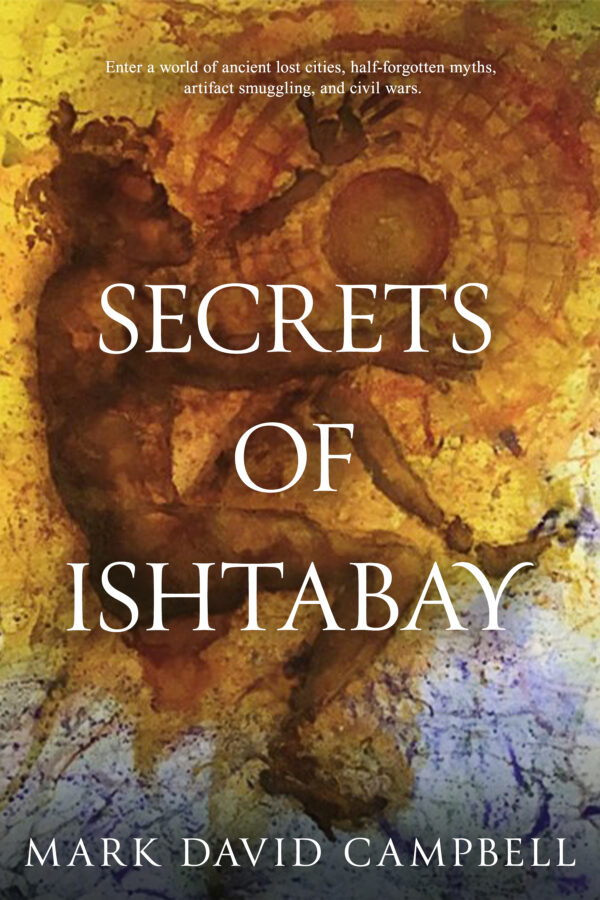by
In 1962, in the western jungle region of Belize, Father Carl, an American missionary priest was found lying dead on the floor of his study. People from the nearby village of San José were blamed but, strangely, no one was ever officially charged or found guilty. Since then the village has been known as, “the village that murdered the priest.” This is only one secret within a carefully guarded web of desire, envy and guilt which torment and isolate people in this village.
Thirty years later, with the introduction of water and electricity, satellite TV and the completion of the Western Paved Road, the village is connected to the outside world: people collide and their secrets unravel, sometimes tragically.
Secrets of Ishtabay takes you into a world of mysticism and antiquity and introduce you to a people who are suspended between an eroding past of ancient lost cities, half-forgotten myths and subsistence farming, and a hostile present of encroaching global economics, illicit drugs, artifact smuggling and civil wars.
Publisher: Ninestar Press
Genres:
Word Count: 8,000
Setting: Belize, Central America
Languages Available: English
Word Count: 8,000
Setting: Belize, Central America
Languages Available: English
For weeks, the whacks of his machete rang out as he chopped and cleared his new patch of jungle. Although his hands were hardened and callused, he tied a white rag around his palm to protect a growing blister, hoping he would finish before it popped and exposed raw flesh to dirt and sweat. He stopped and wiped his brow with his bandana then took a long swig from his canteen. Reaching down, he picked up some dirt and rubbed it between his fingers, then held it to his nose and inhaled. It smelled humid and green, not dusty and brown. In the distance he heard the chop of someone else's machete, probably Tigré, clearing a patch of his own.
READ MOREBy the time the sun had climbed high overhead Chinché had completed his task and with a gesture as easy and natural as if it were an extension of his hand, he flicked his machete and the tip of the blade stuck into a stump at his feet. He wiped his forehead again. A gentle breeze tousled the leaves on the trees that surrounded him and he licked his lips and tasted the air. The winds had already shifted, the way they always did, blowing moist air inland from the Caribbean. Soon the dry season would be over and the rains would begin again.
Chinché took out a box of wax paper matches from his pocket, bent down on his haunches and lit a pile of scrub. The twigs and bark crackled and spit as the fire took. He stood up and whistled to the breeze, enticing her to blow the fire well and burn away what scrub he could not clear. The flames spread and filled the air with the heavy aromatic smoke that comes from burning green wood and leaves. Ever mindful that it not spread beyond the perimeters of his patch, he spent the rest of the afternoon feeding limbs and foliage to the fire. By nightfall, when the clearing had been reduced to smoldering fertile ash, he gathered up his machete, canteen, and owl, and turned to walk the six miles home through the bush to the village.
Just as his father had taught him to do, Chinché waited a few weeks until the first full moon before returning to the milpa to plant. He stepped amongst the blackened logs and stumps, driving his planting stick into the soil. Bending over, he placed a tiny kernel of corn in each hole, then whisked soil over top. Once all his seeds had been planted Chinché set up a simple shrine with a gourd bowl of corn gruel, a small stack of corn cakes and a white candle on a large stump in the center of the milpa patch. He lit the candle and called the ancient ones by name: Chac the rain god, Kinich Ahau the sun god, and Ix-Chel the moon god. Then he knelt and mumbled something over and over. That something had once been words, sacred Maya words his father had taught him to say long ago, but he had said them so often now that—like the Hail Marys the sad old women recited in church—only the tone and rhythm of those words remained. He closed his eyes and thought about his father.
Chinché remained kneeling on the ground of his milpa, chanting until the candle was almost spent. “Thank you, father, for what you have given me.” He stood up. His milpa patch was planted and ready for the rains. There was not much left to do but wait.
Corn, beans and squash, an endless cycle; from wet season to dry, passed on from father to son and from his father before and from his father before that, for hundreds of generations, long before anyone could remember. This was the rhythm of life in the Maya lowlands as it had been passed down to Chinché, and as it would be passed down no more.
COLLAPSE





